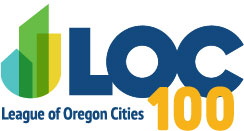Chapter 8: Ethics
“Ethics refers to standards of behavior that tells us how human beings ought to act in the many situations in which they find themselves as friends, parents, children, citizens, businesspeople, teachers, professionals, and so on.”
In the public context, sometimes it is easy to discern when an action is unethical. Other times, whether an action is ethical is more difficult to determine.
Public officials are subject to ethical standards set by law. The law regarding public officials’ ethics and conflicts of interest is provided by various federal and state constitutional and common law provisions, state statutes and, occasionally, local charters or ordinances.
Topics Include:
- The Oregon Government Ethics Commission
- Oregon Government Ethics Law
- Use of Office Prohibition
- Conflicts of Interest
- Gifts
- Nepotism
- Outside Employment
- Subsequent Employment
- Annual Verified Statement of Economic Interest
- Executive Sessions
- Use of Office Prohibition
- Other Sources of Government Ethics
- Constitutional Provisions
- Criminal Provisions
- Constitutional Provisions
- Other Oregon Statutory Provisions
- Solicitation of Public Employees and Activities During Working Hours
- Misuse of Public Funds
- Solicitation of Public Employees and Activities During Working Hours

